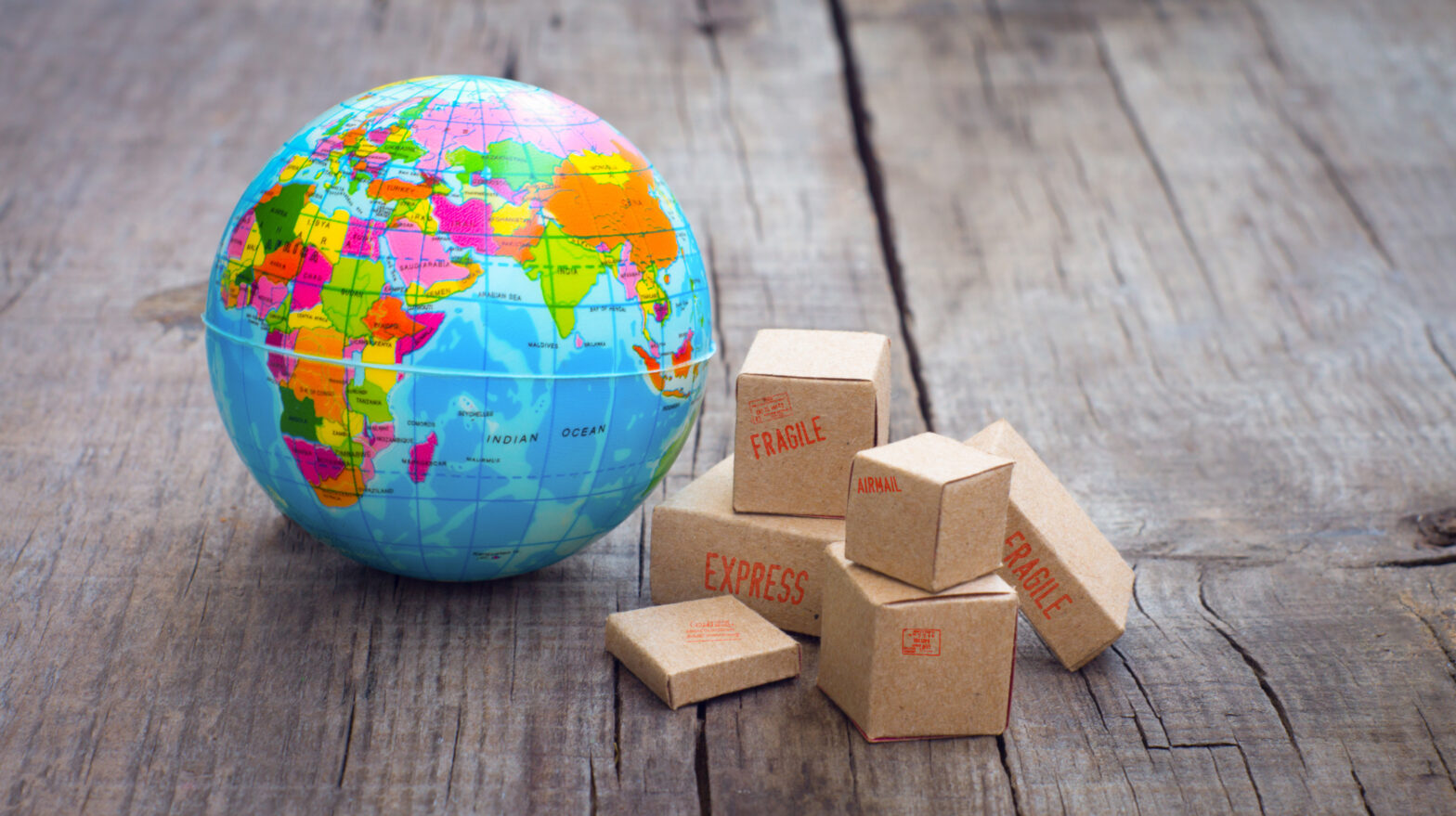Tim Gardner, founder and boss of fast-growing Gardner Energy Management (GEM), is looking for a local partner across the Atlantic to help crack what he sees as a potentially huge market for his Bristol-based company’s Steam Trap. The ten-year-old company, backed by City figure Stephen Hazell-Smith, annually sells up to 10,000 traps, which drain condensates out of steam produced in oil refining and industrial processes, simultaneously slashing CO2 emissions, at an average £200 each to clients ranging from Shell to ‘your local laundry’.
Now Gardner, who has recently doubled his UK sales force to six and has had a tough time establishing a market presence in Germany, is embarking on the formidable task of breaking into the US. Recently returned from clinching a big deal with the Kuwait National Petroleum Corporation, he plans to set up GEM USA with a local operator to further his export drive.
‘We already have a partner in Mexico,’ points out Gardner, who cites GEM’s winning of the UK Engineering Council’s Award for Environmental Achievement as a potential selling point stateside. GEM already makes a third of its £2 million annual turnover abroad, mostly from Ireland and the Benelux countries, and Gardner says export margins are at least as good as those achieved on domestic business.
He reckons the lessons learnt in tackling the German market have been a useful preparation for the US push. Targeting the big chemical groups, such as BASF and Bayer, GEM found the initial response ‘very disappointing.
‘They were very conservative, tried to redesign the product and kept asking, “why do we not make that here?”,’ recalls Gardner. His sales team found ‘lots of barriers.’
‘You cannot simply phone up or call. You must write for an appointment and then they are too busy and, when you do get in, they are very resistant.’
GEM has encountered some of the same attitudes in the USA, especially the knee-jerk, ‘why can’t we make that here?’ reaction. That has reinforced Garner’s conviction that a local partner or agent is crucial to breaking the ice.
However, ‘finding the right agents abroad can be very difficult,’ he warns. ‘You must have someone who really understands your market, sees the benefits of a revolutionary new product and is happy to take on the role of a crusader for it’.
To make sure of that, he warns, ‘it is better to let them come to you, having seen about your business on the web. If you go to them, you’ll find you’re on the wrong foot.’
In Germany, the British consulate ‘was helpful, but just wrote to local people about becoming agents for us,’ recalls Gardner. ‘But only half the agents produced much business, while the rest had no technical background and could not sell, when what you need is real go-getter.’
Setting up local agencies or representatives, sometimes with end-users as partners, is part of the export strategy of Tudor Photographic Group. From its base in Borehamwood, Herts, this company makes its own brand of film, paper, chemicals, frames, albums, digital cameras and other photographic paraphernalia and exports some 30 per cent of its turnover, mostly to Africa, the Gulf and South America, primarily to local wholesalers and private customers with their own mini-laboratories.
Know your markets
A small player in a low-margin market dominated by the likes of Fuji, Agfa and Kodak, Tudor finds exports success ‘depends on friends and local knowledge. Winning new customers depends on being proactive and it takes considerable perseverance introducing products which are not initially well known.’
Where to target can depend on your product, argues the London Chamber of Commerce. ‘Africa is excellent for manufactured goods and training (there are lots of grants), whereas high-tech is likely to fare better in a market like Chile. Relationships can be crucial, too. Tudor trades as much as it can on its name and connections, says executive Andy Paye.
‘Customers tend to be longstanding and they like to be visited to help build trust and loyalty. These relationships are vital, since not only do we get feedback from them about competitive pricing offers from rival suppliers, but also, if the ties are strong, they prefer to stick with us even if some better deals come along.’
Usually, Tudor sets a price on an export item and leaves it to its local partner or agent to sell it on for whatever price it can achieve. Tudor works out the sale price and the client deals with landing
costs and tariffs. Depending on the deal, the price can be ‘ex-works’ (otherwise called ‘factory gate’).
In some cases, an exporter such as Tudor will arrange a ‘door-to-door’ deal, paying (and passing on) transport costs and any tariffs. But more normally the company will take its goods to ‘port side’ and leave the buyer to cope with such imposts as Customs duties and Value Added Tax.
As the London Chamber of Commerce points out, there can be particular arrangements within trading blocs, such as South America’s Mercosur, within which it is easier to sell-on tariff-free or add value to the exported goods, avoiding further levies. ‘It is easier to leave the marketing to them,’ explains Paye. ‘A promotion in one country may not appeal in another, because of cultural differences.’
Both exporters and their foreign buyers can be subject to VAT at rates which vary from 8.4 per cent in the USA to 25 per cent in Sweden and Denmark. It helps to deal with a country, which has a double taxation treaty with the United Kingdom.
Paye says the existence of ‘free ports’ such as Dubai, where goods for re-export are not taxed, has encouraged less fastidious traders to use them as routes to move ‘grey imports’ between fully-taxed markets. In most of these places the authorities are now tightening up.
Knowing local customs and business practices can be as important as mastering the more formal details. According to the London Chamber of Commerce, this can start with knowing who is expected to open the conversation, the buyer or the seller.
‘In Africa, everyone is jovial, but in South East Asia, they tend to be very straight-faced and impassive. In some countries, age carries weight, but in others it creates the opposite impression.’
Weigh the risk
Tudor, in common with other exporting companies has to size up its customers and their countries to decide on what terms it would rather deal with them, if possible. Those deemed the safest and most desirable will be account customers, with a set period within which to pay, though if problems arise, ‘these can cause cashflow problems.’
At the other extreme are those required to pay upfront — Paye comments, ‘European companies are more likely to be account customers than those from certain other continents’.
Alternatively, buyers can provide letters of credit from banks, though that, of course, involves costs — the London Chamber of Commerce says, ‘letters of credit are usually insisted upon for, say, Africa, but elsewhere 60-day payment deals or account arrangements are more customary.’
One of the ever-present risks — or potential windfalls — in exporting is changes in the value of the customer’s currency against sterling. At Tudor, says Paye, ‘we deal in pounds and many of our markets, especially in Africa, base their pricing on the US dollar. If the dollar weakens, making sterling goods dearer and less profitable to sell, Tudor has to take it on the chin. Larger companies can arrange ‘hedging’ programmes with their banks or other financial groups, using the forward markets and/or derivatives. Companies of Tudor’s size, however, ‘are not big enough for that and have to ride the storm’ or reap the benefit.
Language can be another significant hurdle, unless you have a reliable local agent or partner before you start. Increasingly, English (in its American version) is becoming the international language of business, which is helpful, given most British people’s poor command of languages.
But understanding the key people in their own language, with all its nuances, can be vital. In technical matters, particularly, ‘it helps an awful lot to have a linguist’, says Paye.
He speaks of one company in the same sector as Tudor Photographic, which saw big potential opportunities beckoning from the massive Russian market. After thorough and initially eager investigation, the company decided the language problems in dealing with smaller clients there could present insuperable problems.
Angela Potter, head of international trade and cash solutions at Barclays Bank, which advises exporters on identifying and carrying out their foreign market strategies, says a credit check on potential buyers is an essential preliminary step before agreeing any deals. So too are reviews on local tax and other relevant legislation, both in force and contemplated.
She argues the new pre-eminence of former ‘emerging markets’, like China, India, Indonesia and elsewhere, is reviving the use of credit insurance and other devices such as confirming and factoring, provided by insurers, banks and specialist groups. All are worth investigating by exporters and would-be exporters.
Take cover
In certain circumstances, exporters can, for a price, buy insurance against the risk of an overseas customer failing to pay for the goods or services provided. Private companies, such as European-owned Trade Indemnity, sometimes offer such cover, but the biggest player is the Export Credits Guarantee Department (ECGD), part of the Department of Trade and Industry.
For example, the ECGD’s supplier credit finance facility can fund up to 85 per cent of the value of a contract for UK exporters of light capital or capital goods and services with a two-year credit at a fixed interest rate. This can be combined with insurance covering the period before, allowing the exporter to be able to draw on the supplier credit finance.
One satisfied recent ECGD client is Omega Foundry Machinery, which has recently completed a ‘substantial’ contract in Turkey. ‘That would not have been possible without the availability of supplier credit finance,’ reflects Hazel Brown, Omega’s financial director.
The ECGD sets its premiums in relation to the country and risk in question and with an eye to chances of recovering claims from overseas defaulters and meeting its own formal obligation to break even. The agency can play a key role in large contracts, involving government-to-government deals for infrastructure and defence projects.
How helpful is Government?
Apart from ECGD and consular assistance abroad, the Government has other ways to help exporters. UK Trade & Investment, with specialist staff in Britain and embassies around the world, which provides marketing scholarships abroad for UK executives, operates a Passport to Export programme, launched three years ago specifically for small-to-medium-sized businesses.
According to UK Trade, some 3,500 companies have so far joined the programme, which provides training, planning and trips to overseas markets. UK Trade also publishes a list of ‘Do’s and Don’t’s’ for exporters and a ten-point exporters’ checklist.
Some companies are well pleased with the programme, such as London-based drug and vaccine delivery technology specialist Lipoxen Technologies, which the other day signed an agreement with the Serum Institute of India, the world’s leading vaccine maker, to develop eight new Lipoxen products in India.
The company’s chief executive Scott Maguire enthuses, ‘UK Trade & Investment’s ability to provide specialist sector knowledge as well as local market support significantly contributed to our success in winning this business.’
However, not everyone is cheering. The issue of Government-sponsored trade missions, seen as vital for smaller, would-be, exporters without the access to local representation available to big groups, is particularly sensitive.
The London Chamber of Commerce complains that the money available for grants to take companies on trade missions and to exhibitions is being cut from £23 million to £8 million over two years. Funds per delegate are falling from £2,500 to £1,700 this year and will be phased out altogether in 2006.
A frequent complaint is that the Government is keener to attract investment into Britain by foreign companies than to help British companies outperform in export markets. Tudor Photographics, for one, says it is competing overseas on the one hand with Italian companies that are benefiting from domestic rent subsidies for exporters and on the other with companies ‘given perks’ to set up in Britain.
Trade & Investment spokesman Andy Towers says trade mission support is being ‘refocused, not abolished. We are in the middle of a consultation and the intention is to devolve funds to the regions and highlight smaller companies.’ State aid is, in theory at least, ‘tightly controlled’ by EU rules.
Nearly fifty years ago, Prime Minister Harold Macmillan proclaimed, ‘Exporting can be fun’. That may not be your experience, but there are still profits to be made out there.
The export checklist
- Be prepared
- Do your homework
- Make a plan
- Choose a sales route
- Promote your product
- Visit the market
- Get the legal side right
- Get paid on time
- Transport goods effectively
- Maintain after-sales effort
*source: UK Trade & Investment






